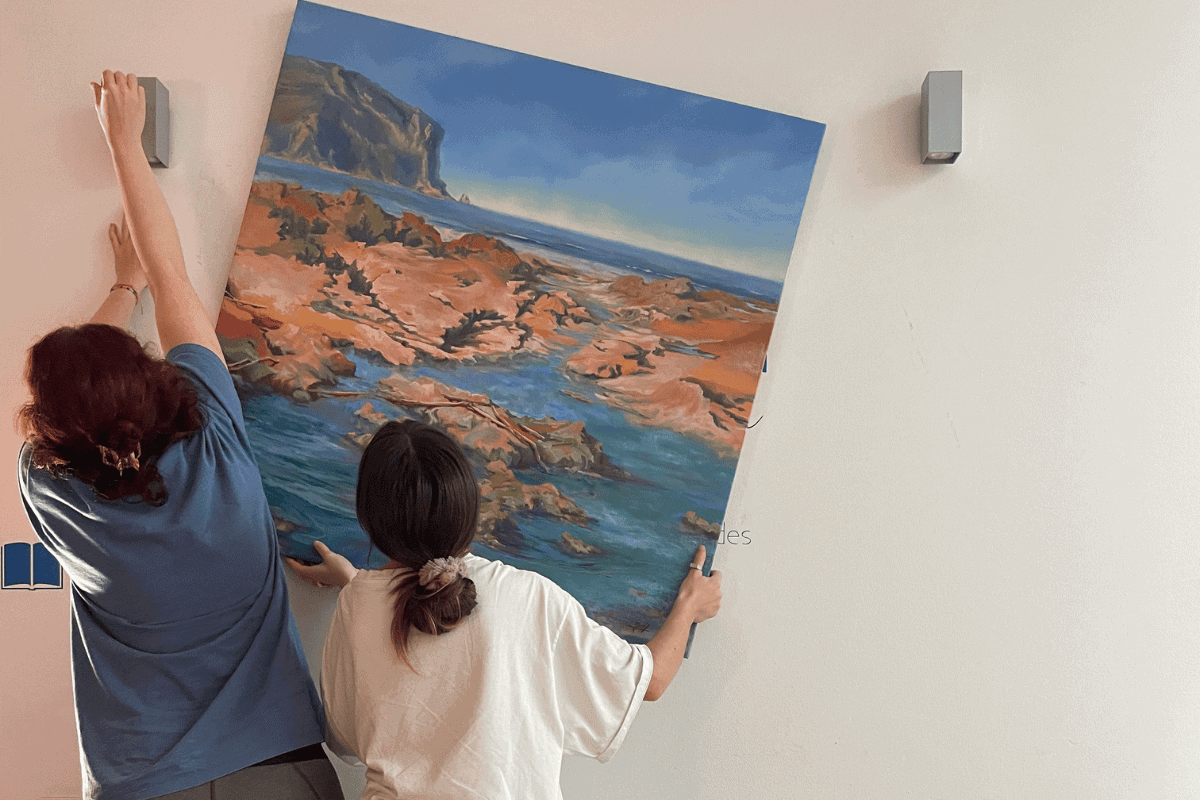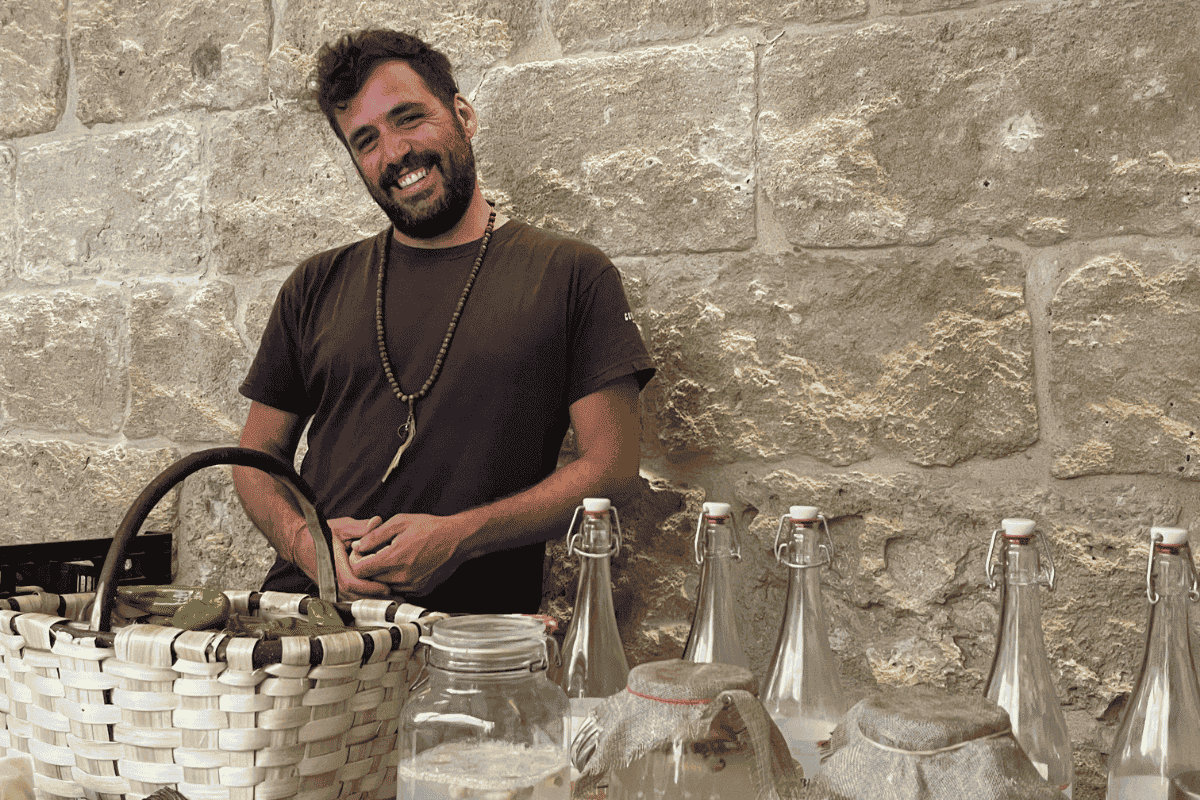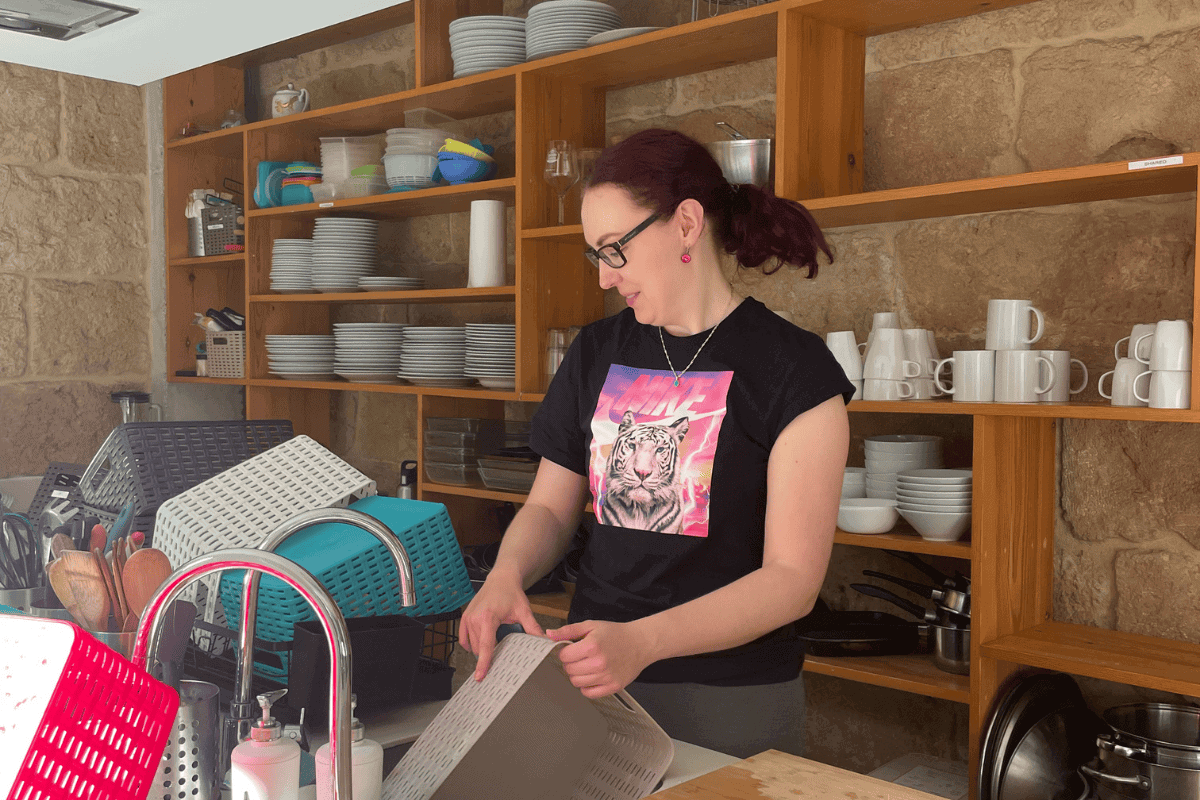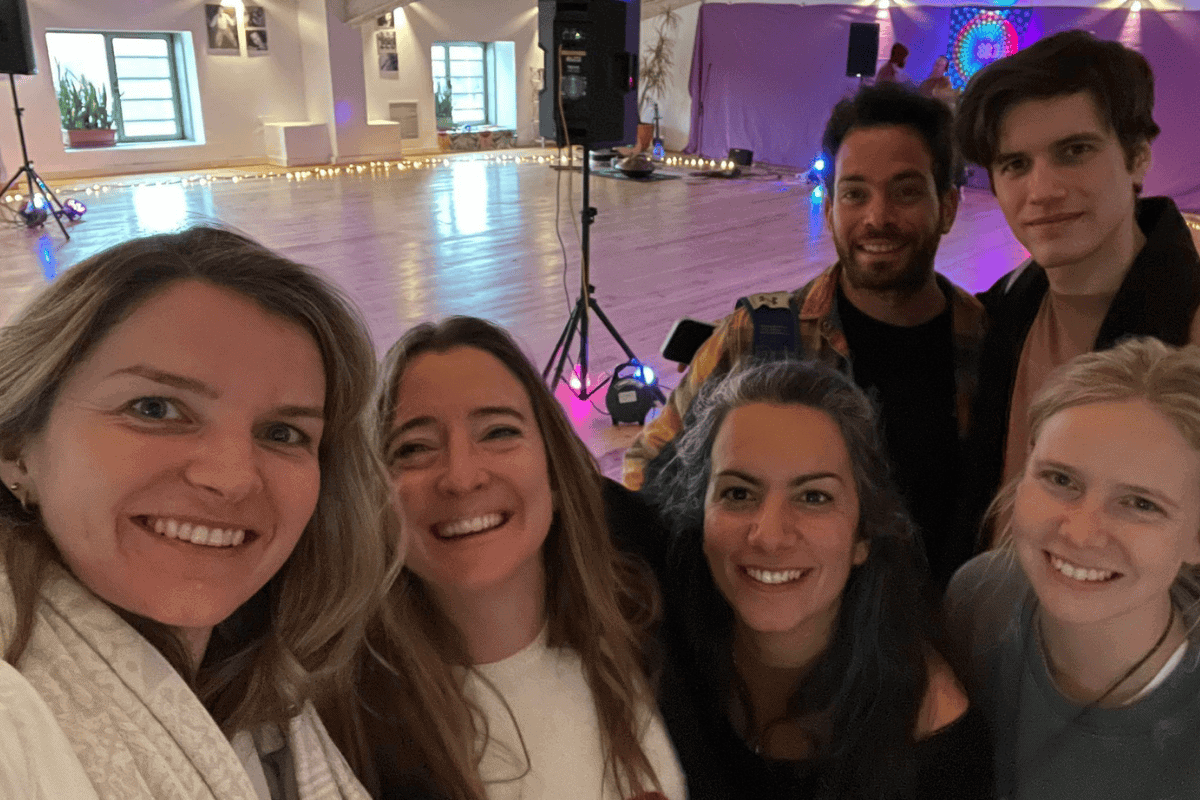If you have read through Part 1 of this article, you might have got an understanding of (some) of the challenges that come with being a coliving operator.
From disagreements to friendships, the line between personal and professional can be crossed in a split second with the risk of leading to social burnout and a lack of motivation.
Over the years I explored and implemented different strategies, from small to big, failing and succeeding over and over again in finding my own balance. I made changes in how I engage with the community, in my expectations and especially I have learned to take care of myself and my needs—I was forced to do so in order to continue doing a job that I truly love and that allows me to be surrounded by an amazing community.
So before you start thinking “This job just feels like too much”, here below are some of the learnings I can bring on the table as first tips, both for current operators and aspiring ones. Again, these come from my personal and experience, what worked for me might not be relevant for someone else—yet, I wish I could have had this shared knowledge as a starting point when I jumped onto this career.
Biggest learnings
Challenges come (hopefully!) with learnings.
Each space I’ve worked in has taught me something valuable depending on which stage of my journey I was in. When I onboarded the new team at Sun and Co. in September 2024, I made sure to include a full session (in our hosting manual as well as a conversation) about the attitude requested from a Sun and Co. host and how to protect yourself and your wellbeing.
Here are four key lessons I had shared with them:
Key Lesson 1: Set Your Boundaries
If there’s one golden rule in this field—straight out of any therapist’s or coach’s playbook—it’s this: setting your own boundaries is essential. It’s not just about protecting your mental and emotional health; it’s about ensuring you can sustain yourself in the long run.
As we have seen, the reality of working in coliving is that the line between private and professional life gets blurry very quickly. Setting clear boundaries is how you create some separation—and preserve your energy for when it matters most.
Over the years, I’ve come across a few strategies that have helped me navigate this tricky balance:
1. Let People Know When You’re Off-Duty
It’s natural for colivers to approach you with questions or work-related concerns, even during social moments, if they see you around. But just because you’re physically present doesn’t mean you’re “on the clock.” It’s perfectly fair to let people know when you’re not working and redirect them to the appropriate person or time.
For me it felt awkward at first, but when I started to enforce these boundaries regularly, people learned to respect it, and I started feeling less tension about blending work and social life.
2. Choose How Personal You Get
Living and working in the same space means guests will naturally be curious about you. They’ll want to know your story—how you ended up here, what your life is like, and all the interesting experiences you’ve had while working in coliving. While it can feel wonderful to connect and share your journey, you’re under no obligation to open up more than you’re comfortable with. So be selective about what and how much you share and with whom: some guests may feel like close friends, while with others, you might prefer to keep things more professional. And again—set your boundaries! It’s perfectly fine to politely disengage if a conversation starts to feel draining or intrusive.
I chit-chat all the time, I could literally go on for hours. So it was a slow process for me to remember that I am not obligated to give every guest a piece of myself.
3. Use Physical Boundaries to Reinforce Emotional Ones
One thing I’ve learned is that the space around you can influence how boundaries are perceived. If you have access to a private room or specific areas meant for team use, lean into those physical separations when you don’t want excessive engagement. Similarly, if you’re joining the community for fun, make sure you’re mentally leaving “work mode” behind.
At Sun and Co. I had, for the first time, the chance to live outside of the community and experiment more with my ability of creating physical boundaries.

Team members taking care of the house
Key Lesson 2: The Outside Life
For volunteers joining a team for 2–3 months, the excitement and short-term commitment can make everything feel fresh and new. But for those working in the industry long-term, building a life outside the coliving community is crucial for balance and stability.
When you’re surrounded by people constantly on the move, it’s easy to lose sight of your own need for roots. While guests come and go—some becoming lifelong friends—you’re likely staying put, at least for a while. You are working with nomads, but you are not a nomad yourself. So, what happens if you’re going through something personal? Or when you crave more consistency and want to share your life with people who aren’t in transit?
That’s where cultivating a stable social network, familiar routines, and connections outside the coliving bubble becomes vital. Having a sense of permanence grounds you in the place you’re living and helps you build a life that feels like your own, even in the midst of a nomadic world.
For myself, I can say that this is easier said than done.
Key Lesson 3: No FOMO
It’s simply impossible to say “yes” to everything. In a coliving environment, the volume of social and professional activities is overwhelming. With new colivers constantly arriving, full of energy to explore and organize, there’s rarely a pause. Sure, some groups may be quieter than others, but overall, there’s always something happening—be it a workshop, a big hike, or a cozy movie night.
After six months at Nine Coliving, I realized I was gonna stay longer than I’d planned, and with that came a hard truth: I couldn’t afford FOMO (Fear Of Missing Out). Trying to keep up with every activity, both financially and time-wise, simply wasn’t sustainable.
This realization taught me a crucial lesson: setting priorities and being selective about how you spend your time is essential. You don’t need to join everything to feel part of the community. Sometimes, saying “no” creates the space you need to recharge, focus on personal goals, enjoy a quiet moment or build a social network outside of the coliving. Recognizing that you don’t have to be everywhere to belong is a valuable shift—and one that makes your experience much more fulfilling in the long run.
Key Lesson 4: Me Time is Necessary
Yes, even in a lively and ever-changing community, carving out your personal space is absolutely essential. When living and working in a coliving environment, it’s easy to get swept up in the constant stream of interactions, activities, and connections.
The amount of “me time” you need depends entirely on you—there’s no one-size-fits-all. Whether it’s taking a solo walk, diving into a book, or simply retreating to your room to recharge, creating these moments of solitude allows you to reconnect with yourself and regain balance.
In a space where people are constantly coming and going, your energy can often blend with those around you, creating a beautiful sense of unity but also blurring the boundaries of your own emotional and mental well-being. Protecting your “bubble” is not selfish—it’s an act of self-care that keeps you grounded and ensures you can fully enjoy the community without losing yourself in it.
Let people know you need some alone time, you’ll most likely be surprised by how much this is respected!

Team member organising an extra skillshare
It’s a business
It’s probably clear by now that one of the hardest parts of working in the coliving industry is navigating the fine line between personal connections and professional obligations. This can especially be awkward when someone you genuinely consider a friend comes to visit and you have to discuss pricing for their stay. It feels personal, but at the end of the day, it’s not—it’s just the reality of running a business.
At Sun and Co., where I managed sales and bookings, I encountered countless situations where people requested discounts, exceptions, last-minute refunds, changes to bookings, and other special accommodations. These requests are understandable—however, what I came to realize is that the “family vibe” we strive to create within the coliving community can sometimes lead to a misunderstanding. Guests often associate that sense of connection and familiarity with the idea that we’ll meet every request, no matter what.
The truth is that we simply cannot accommodate everything. Why? Because, at its core, it’s still a business.
While our mission is to foster community, create unforgettable experiences, and help people build meaningful connections, we also have practical considerations. Behind the scenes, we’re managing budgets, accounting, taxes, salaries, utility bills, and property maintenance—just to name a few responsibilities. Every decision we make has to factor in these realities. If we ignored them, the space that so many people love and cherish simply wouldn’t exist.
This reality extends beyond financial decisions to how we manage our team. Like any other business, we have schedules, shifts, and time off to respect, as well as personal strengths and flaws. While we make every effort to be flexible and accommodate the unique needs of both guests and staff, there are limits. Not every request makes sense for the long-term health of the team or the sustainability of the business.
For small businesses like Sun and Co. (small businesses that have a key focus on community) the work behind is really driven by passion.
Over time, I’ve learned how important it is to share this reality to others. Many people who have grown close to me or spent significant time at Sun and Co. were surprised when I explained how even what seems a small change sometimes could create bigger challenges for us.
While there is no obligation to go into details, sharing and having people understand the unique nature of coliving spaces—and the balance required to run them—helped guests appreciate what makes each space special without expecting it to bend to their every need.
This doesn’t mean we don’t care! Quite the opposite: we work hard to maintain a sense of connection and community because we do care deeply about the people who join us. But we also have to ensure that we’re taking care of the business and our team so that the magic of coliving can continue to thrive.

Team member cleaning up the common kitchen
The Power Returned
You might be wondering: with all these challenges and occasional struggles, why do I continue to work in coliving? The answer is simple—because it’s the job that has touched my heart the most.
There’s something incredibly powerful about creating a space where people can truly connect, explore, and be themselves. Being part of that process is both humbling and inspiring. It’s not just about providing a roof over someone’s head; it’s about offering a sanctuary where people can open up, form meaningful relationships, and experience personal growth. This work has profoundly shaped me, teaching me the delicate balance between holding space for others and reserving space for myself. Along the way, I’ve gained a wealth of knowledge in so many areas—I can honestly say I know a little about a lot!
Coliving spaces offer a unique blend of exploration and comfort, allowing people to step into the unknown while still feeling supported.
The energy brought by their temporary nature (which is not for everyone) is what makes these spaces truly special. Everyone is passing through, and that transience creates a sense of urgency—an eagerness to make the most of the moment. People tend to open up faster, form bonds quicker, and show up for one another in authentic ways. Whether it’s lending an ear during a tough time or celebrating a win, the community is there for you.
In the end, all the challenges of working in this field were outweighed by the reward of witnessing transformation—both in myself and in the people I’ve had the privilege to meet.
It’s not just a job; it’s a pure journey.

Enjoying time with guests and friends
Conclusions & Last Advice
Working in a coliving space that hosts dynamic, short-term communities of digital nomads and remote workers is an adventure like no other. It’s a role that blends excitement, creativity, and constant connection with people from all over the world. However, it’s also a role that demands commitment, adaptability, and a deep sense of purpose.
To anyone considering starting or building their own coliving space, my first piece of advice is this: building a thriving coliving community requires time, care, and unwavering dedication—especially in the early stages. It’s about far more than offering accommodation; it’s about fostering an environment where people can connect, grow, and create meaningful experiences together. Be ready to put time, energy and your personal touch into this work.
The coliving spaces that inspire me the most—places like Sun and Co., Nine Coliving, Cloud Citadel, Alpiness and all others that embrace a true community ethos—didn’t achieve their magic overnight. They were built with patience, a clear vision, and an incredible amount of effort. Behind the scenes, there’s a deep understanding that cultivating a space where people feel at home, supported, and connected takes consistent energy, intention, and care. This is the secret to creating something meaningful, a space that leaves a lasting impact on everyone who walks through its doors.
The journey of building and running a coliving space will push your boundaries. It will challenge your resilience and invite you to rethink how you see the world and your place in it. It’s not a sprint, but a full-on journey that will test your limits while offering some of the most fulfilling experiences imaginable.
It’s a job that constantly gives back to you.
For anyone working in the coliving industry—or even for digital nomads who are frequently immersed in community life—my next piece of advice is this: be part of the community, but don’t lose yourself in it. Stay grounded by maintaining focus on your personal needs and well-being, and keep connecting with the reality around you outside of that “coliving bubble” that often is created. Strike a balance that allows you to participate in the community on your own terms, in a way that recharges you rather than drains you. This will help you thrive in this industry and have a greater impact on the people surrounding you.
ColivingHub is a great space where coliving operators can connect and share their journeys and struggles, and I hope that these words have brought some insights to all our beautiful colivers that love our spaces so much: behind the scenes there are people passionate about their job.
While it may not be easy, I can confidently say this: if you decide this is your calling, it’s one of the most rewarding and fun jobs you’ll ever find.

Making friends in the coliving




